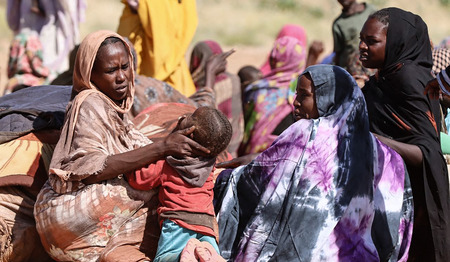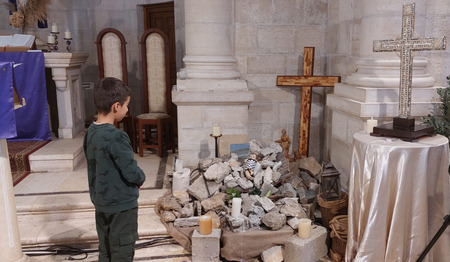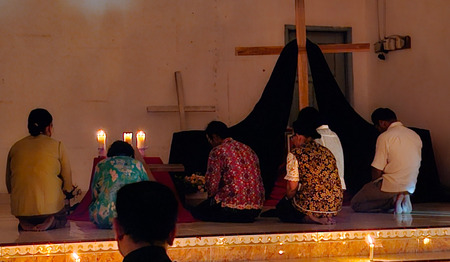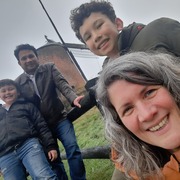Shared Futures in a Nutshell
Shared Futures builds on the assumption that a combined approach of interfaith dialogue and social-economic cooperation creates a multiplier effect that can increase community resilience to interfaith tensions and conflicts.
A comprehensive approach
Exclusion and scarcity, created and aggravated by unequal power balances, are the main drivers of conflict. Shared Futures does not merely want to end conflict, but also wishes to address the root causes of it. That is why it seeks to ignite a conflict transformation process.
Conflict transformation attempts to build new systems and relationships that address structural causes of conflict, such as power inequities or cultural norms and beliefs which perpetuate discrimination and exclusion of minority groups. This requires a complete package of interventions.
Sectoral boundaries, however, often stand in the way of such holistic approaches. Theologians, for example, tend to fall back on interfaith dialogue when seeking to resolve interfaith conflicts. They focus on text and language and seem to have less attention for the socio-economic aspects of divisions. Development actors, on the other hand, seem to underestimate the role of religion in society.
Targeting youth can ignite a conflict transformation process in the community
Youth experience a stage of life in which they are seeking an identity while looking for approval and validation. Religiously and ideologically inspired struggles for justice can help them discover and express who they are. Enforced by economical disadvantages, youth are often drawn to join activist and – unfortunately also – militant groups. These can provide them with a means to identify with others and make themselves known to the world.
Youth are often characterized as either disengaged consumers or radicalized threats to peace and security. Such (mis)representations ignore the fact that young people have an acute sense of justice. They long to build their own, economically independent, futures. They have a thirst for knowledge and a desire to contribute meaningfully to society.
Shared Futures believes that the energy and aspirations which drive youth in their struggle for a better future have the potential to ignite a broader transformation process in the community, one that can help to overcome interfaith tensions and increase social cohesion. That is why it places youth at the heart of its approach.
We need new narratives on religion and development
In today’s public debate, religion is frequently framed as a source of violence. Although certain religious teachings and leaders do indeed spread the seeds of intolerance and hatred among their followers, such generalizations also bear risks and blot out opportunities.
Where tensions and conflicts are seen as religiously inspired, faith-based organizations may experience even more restrictions than secular civil society organizations, while they are often the first to notice it when their followers misuse religious convictions for political gains. Besides, this approach undervalues the positive role religious values and actors can play in support of just, resilient and peaceful societies.
Religious beliefs and practices can be a source of consolation and inspiration in times of crisis. They can propel people to look after the poor and marginalized, to act in solidarity with the oppressed, and to struggle for peace and justice. They appeal to the common human desire to belong, to do good and be part of (and participate in) society.
New narratives on the constructive and peaceful power of religion are needed to nuance and complement the dominant narrative which casts religion as the culprit of violence. That is why Shared Futures also builds on the assumption that new narratives on the constructive power of interfaith cooperation can uncover and stimulate the positive contributions of faith and faith actors to peace and development.





